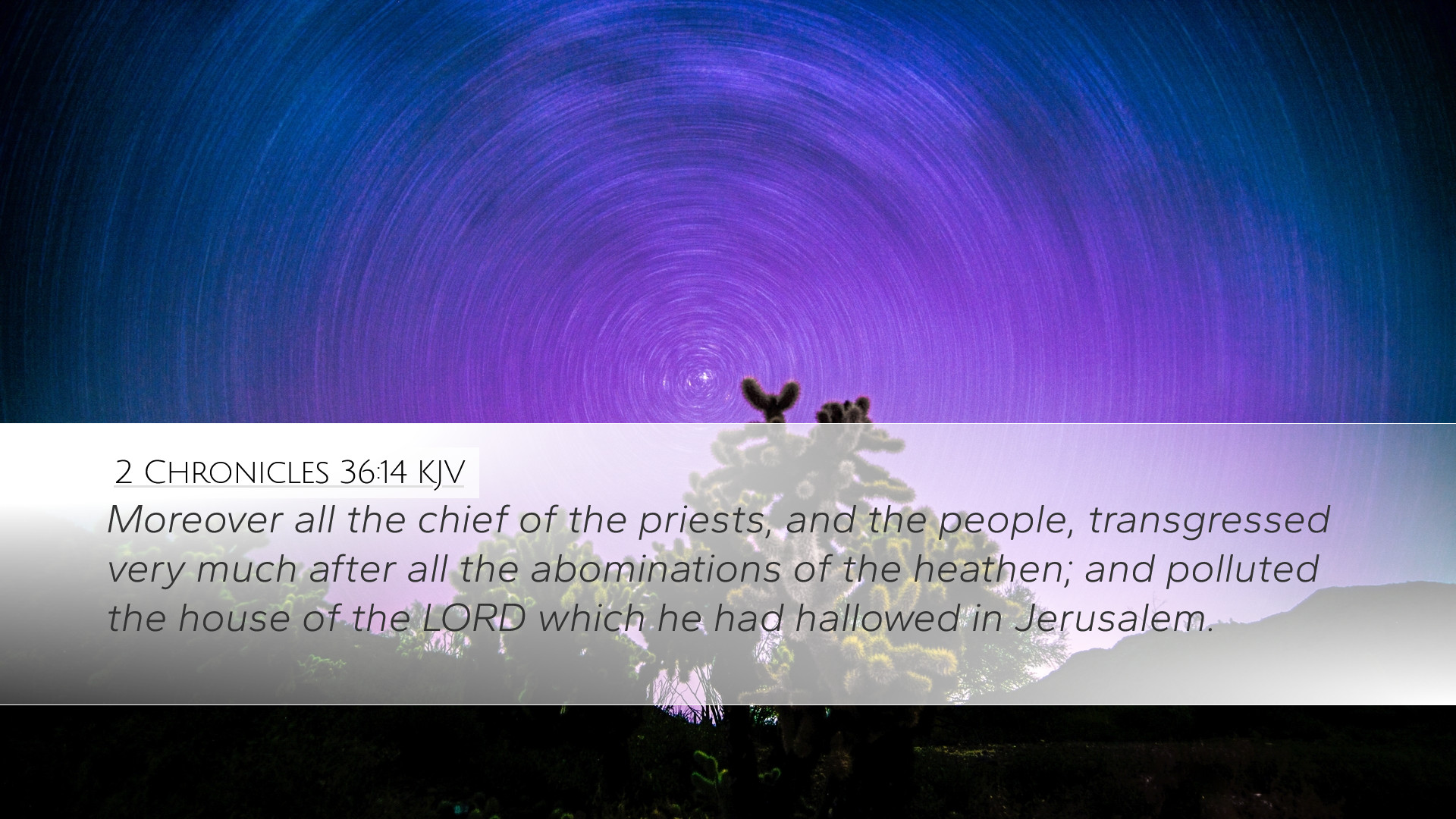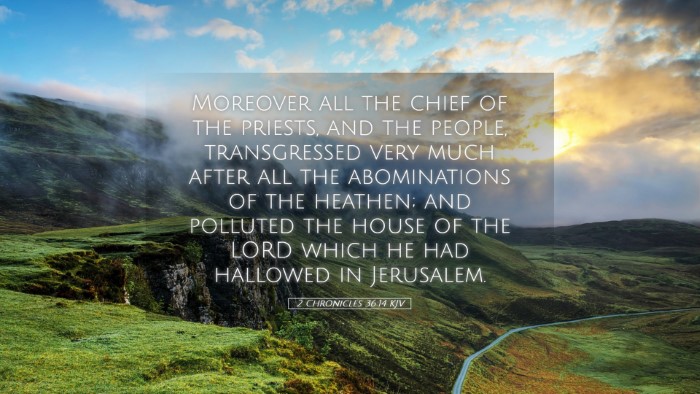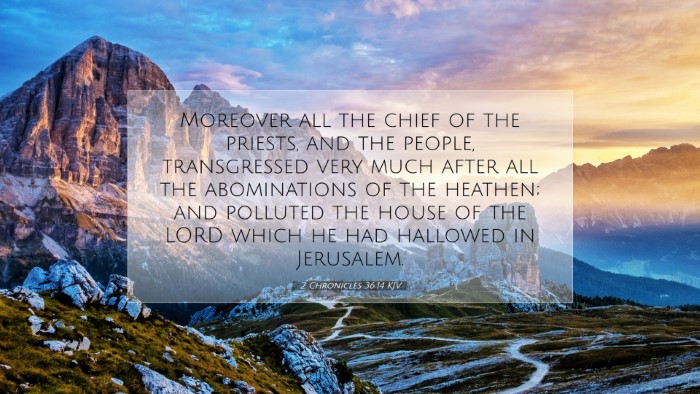Commentary on 2 Chronicles 36:14
Verse: "Moreover all the chief of the priests, and the people, transgressed very much after all the abominations of the heathen; and polluted the house of the Lord which he had hallowed in Jerusalem."
Introduction
The verse under consideration serves as a solemn declaration of the state of spiritual and moral decay that had overtaken the people of Judah. It reflects upon the disobedience of the priests and the populace, coupled with a stark warning regarding the consequences of straying from divine commandments. This commentary draws from various public domain sources, including Matthew Henry, Adam Clarke, and Albert Barnes, to elucidate the gravity of this passage.
Contextual Analysis
In the broader narrative of 2 Chronicles, we find that the chronicler is recounting the history of Judah with a particular emphasis on the consequences of unfaithfulness to God. These verses take place during a time when the nation was under the influence of idolatrous practices that had infiltrated even the sacred places of worship.
Historical Background
Following a series of reforms aimed at purifying worship, the spiritual state of Israel had quickly deteriorated once more. As noted by Matthew Henry, "The house of the Lord was meant to be a holy place, but man's transgressions made it a place of abominations." This highlights the sacredness of the temple contrasted against the horrific practices engaged by both priests and common people alike.
The Role of the Priests
Albert Barnes emphasizes the role that the priests played in this tragic descent: "The leaders, who should have been guardians of the sanctity of worship, themselves partook in these abominations." Their failure to uphold the holiness of the temple serves as a reminder of the accountability borne by spiritual leaders.
The People’s Complicity
Not only the priests but the populace at large indulged in practices aligned with the heathens. Adam Clarke notes, "They were not mere followers but active participants in desecrating that which was dedicated to God." The collective actions of the people reveal a departure from faithfulness that resonates throughout Scripture—indicative of a community that has lost its understanding of divine reverence.
Theological Insights
This passage invites deep theological reflection on the nature of sin and its effects on communal worship. The transgression after "all the abominations of the heathen" signifies a heartbreaking exchange of holiness for cultural conformity. As noted in theological scholarship:
- Idolatry: The allure of surrounding nations led to a syncretic approach to worship. The blending of faiths diluted the people's commitment to Yahweh.
- Pollution of Worship: The term "polluted" suggests a corruption that taints not only the physical structure of the temple but also the spiritual integrity of the worshiping community.
- Divine Judgment: The ultimate consequence of such moral and spiritual neglect is a separating judgment from God, as foreshadowed in the history of Israel.
Practical Applications
For today's pastors, students, and scholars, this passage serves as a cautionary tale about the importance of safeguarding the sanctity of worship. Some key takeaways include:
- Leadership Responsibility: Leaders must strive to embody holiness in their practices and teachings, acknowledging that their role bears significant influence over the spiritual health of their communities.
- Cultural Engagement: While the church must engage with the culture, it must do so without compromising on biblical truth and moral standards. It's vital to discern the difference between cultural relevance and cultural conformity.
- Community Accountability: The passage underscores the need for communal accountability in guarding against moral decline. Emphasizing a shared commitment to holiness can foster a culture of responsibility before God.
Conclusion
2 Chronicles 36:14 serves as both a warning and a reminder of the perils of abandoning God's ways. The insights gleaned from public domain commentaries illuminate the historical and spiritual significance of this verse and compel us to reflect on our own practices of worship. May we heed the lessons of the Israelites as we endeavor to maintain purity in our spiritual lives and organizations.


